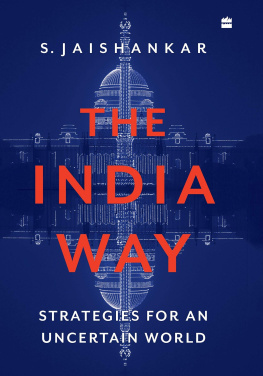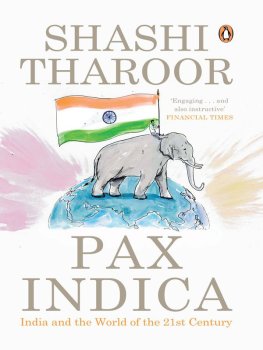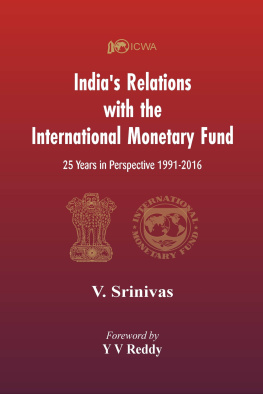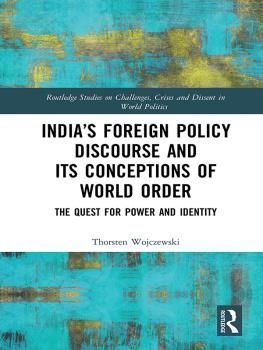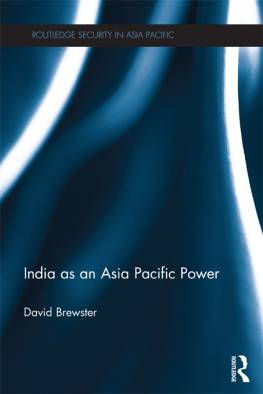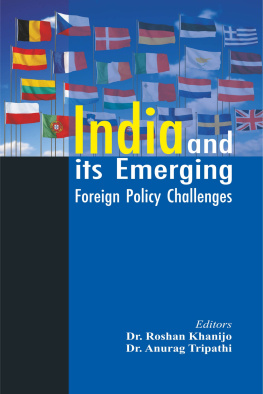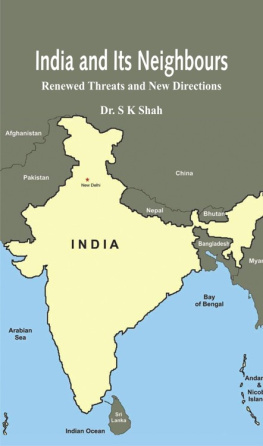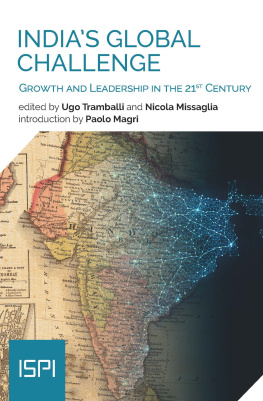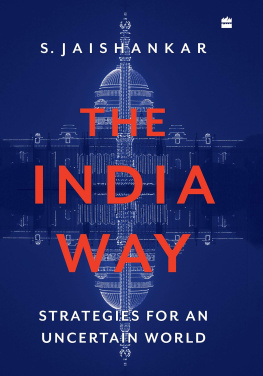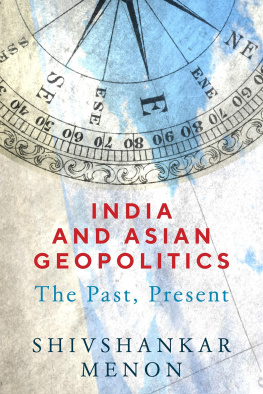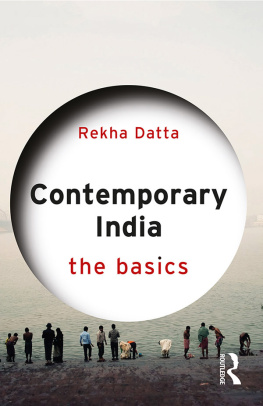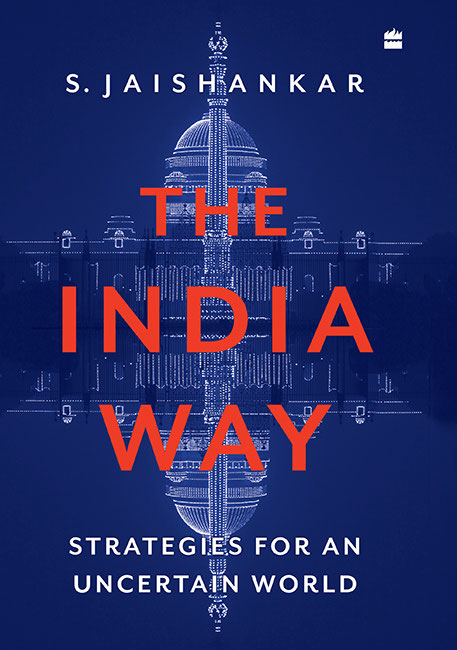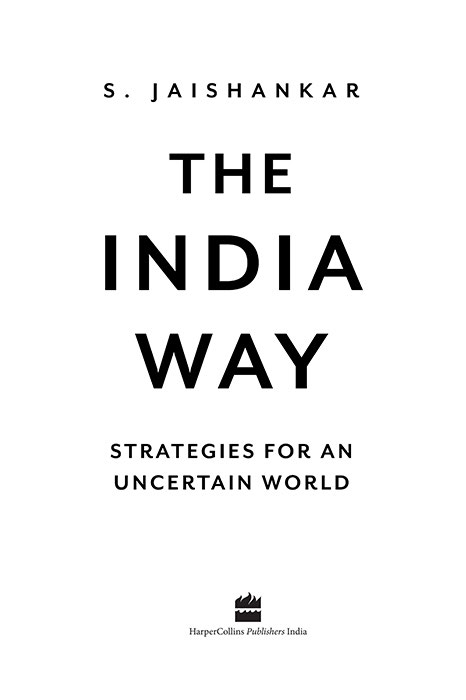For
K. Subrahmanyam, father
and
Aravinda R. Deo, mentor
Contents
Wisdom is to live in tune with the mode of the changing world
THIRUVALLUVAR
It was unsettling to discover after four decades as a professional diplomat that many of the assumptions on which we had operated were now being called into question. But it did not follow from there that our experiences were suddenly irrelevant. On the contrary, it seemed that those who could most objectively assess the last many decades were best placed to anticipate the coming times. Seeking truth from facts is, however, not easy. If the pressure of political correctness is one challenge, the weight of accumulated dogma is no less. An equally difficult reconciliation is that between an adequate awareness of the global context, and yet viewing it from a hard-headed national perspective. This has been a persistent dilemma since Independence and the era of nationalism has only sharpened it further. These are some issues of an endeavour that has occupied me for the last two years.
In many ways, it was natural to put pen to paper on the subjects around which my life has revolved. An unpublished PhD thesis and an in-house history of the Indo-US nuclear deal provided some confidence to do so. Thus, it came about that after my tenure as Foreign Secretary ended in 2018, this initiative began through a fellowship with the Institute of South Asian Studies, Singapore. If the project kept changing form and content thereafter, much of that reflected the rapid pace of events in the world we live in. At some stage, I put aside the temptation of bringing in any aspects of a memoir, believing that they are better written by those who are no longer operational. Instead, my effort was to develop an argumentation on contemporary politics through interactions in different forums, keeping them as analytical and dispassionate as possible.
Looking at the world over these four decades from key vantage points was truly helpful in arriving at a detached view of its risks and possibilities. A professional initiation in Moscow taught me valuable lessons in great power politics, some perhaps unintended. Four stints dealing with the United States created a lasting interest in a polity whose confidence and resilience are quite unique. A long stay in Japan was an education in the nuances of East Asia, as indeed in the unrealized potential of our ties. And a shorter one in Singapore brought out the importance of adjusting to global happenings. Postings in Prague and Budapest heightened sensitivity to the currents of history. An absorbing but difficult tour in Sri Lanka was an invaluable politico-military experience. But, if there was one great learning, that was in a China that I caught at an inflection point in 2009. As Ambassador there, subsequently in the US, and then as Foreign Secretary, I have had a ringside view of recent global changes. Above all, interacting with our own leadership over many years at different levels of hierarchy had a value that is difficult to put in words. From that, the big takeaways were the importance of defining strategic goals, recognizing optimal outcomes and appreciating the interplay of politics and policy.
This book was developed in the course of the last two years through a series of events. Lectures given at think tanks, conferences or business forums form its core. They remain relevant in large measure but have been updated where required. The Lessons of Awadh is a fusion of comments on various such occasions. The Art of the Disruption draws on addresses to the Oslo Energy Forum, the Raisina Dialogue, the Sir Bani Yas Forum and the Centre for Strategic and International Studies. Krishnas Choice was articulated in its essence at the Sai Foundation, New Delhi. The Dogmas of Delhi is an expanded version of the Fourth Ramnath Goenka Memorial Lecture. Of Mandarins and Masses is a hybrid of talks at St Stephens College, the Heritage Foundation, the University of Birmingham and the Atlantic Council. The Nimzo Indian Defence is based on a lecture delivered in Singapore. A Delayed Destiny combines discussions at the Delhi Policy Group, India Foundation and the India International Centre. The Pacific Indian owes its articulation to three Indian Ocean Conferences organized by the India Foundation and one by the National Maritime Foundation. And After the Virus builds on recent speeches starting with the Fifth Raisina Dialogue 2020, taking into account the impact of the pandemic.
To the organizations that provided a platform to formulate and express my thoughts, I am profoundly grateful. Audience responses were helpful in developing the argumentation. If propositions are sometimes deliberately sharpened, it is only with an intention to set minds at work. Global developments are clearly the overarching context for an exercise in which our national performance is assessed. The coronavirus epidemic is not only a reminder of this reality but also a harbinger of changes that the world will now experience. To appreciate its consequences, what we require at home is a dispassionate debate that rises above competitive politics.
I am in debt to all those who have contributed to the making of this volume, especially an irreverent family, long suffering friends and argumentative colleagues. A special word of thanks to Radhika, Guru, Rajesh and Ramesh without whom these views would have never found expression. My publishers, especially Krishan Chopra, have been very patient as the fate of the book was linked to the twists and turns in my own life. I hope that their forbearance is rewarded.
The heaviest penalty for declining to rule is to be ruled by someone inferior
PLATO
A famous Satyajit Ray film some decades ago captured the Indian self-absorption that shapes its larger awareness of the world. It depicted two Indian nawabs engrossed in a chess game while the British East India Company steadily took over their wealthy kingdom of Awadh. Today, as another global power rises that too in Indias immediate proximity this country cannot be oblivious once again to its consequences. Ideally, the emergence of China should serve as an inspiration to sharpen Indias competitive instincts. But at the very least, it should stir a serious debate about the direction of world politics and its implications for us.
This is important because in parallel there are other momentous shifts underway. A larger rebalancing was already in evidence, now overlaid by greater regional volatility, higher risk-taking, stronger nationalism and a rejection of globalization. But the critical change is the recalibrated posture of an America that has long been the bedrock of the contemporary international system. Its response to Chinas rise may well determine the direction of contemporary politics. Because global happenings are not always factored fully into its internal dynamics, such developments have often passed India by. How they impact its thinking is also not always made clear in the absence of definitive political narratives. So as India rises in the world order, it should not only visualize its interests with great clarity but also communicate them effectively.
This is an effort to contribute to that endeavour, encouraging an honest conversation among Indians, without discouraging the world from eavesdropping.

